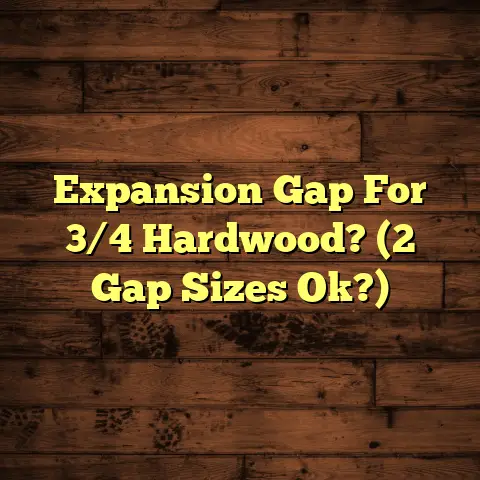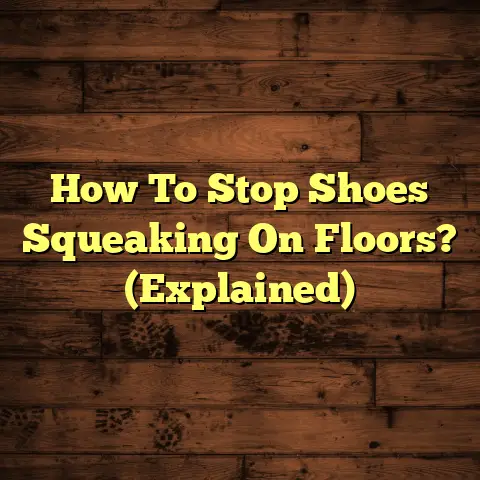Are Epoxy Garage Floors Worth The Investment?
Imagine this: You walk into your garage, ready to tackle that weekend project. But instead of the usual cracked, dusty concrete, you’re greeted by a sleek, glossy surface. Light bounces off it, making the whole space feel brighter and cleaner. It’s almost… luxurious.
That’s the magic of an epoxy garage floor. It’s not just a floor; it’s a transformation.
Most homeowners don’t give their garages a second thought. It’s just a place to park the car and store tools, right? But what if I told you that investing in an epoxy floor could be one of the smartest home improvement decisions you make?
But is it really worth the investment? That’s the question I’m here to answer. As a flooring contractor with years of experience, I’ve seen firsthand the impact epoxy can have. Let’s dive in and see if it’s the right choice for you.
Understanding Epoxy Garage Floors
So, what exactly is epoxy flooring?
Simply put, it’s a thermosetting resin that’s applied as a coating over your existing concrete floor. It’s made up of two parts: a resin and a hardener. When mixed, these two components create a chemical reaction that results in a rigid, durable, and chemical-resistant surface.
Think of it like this: concrete is the foundation, and epoxy is the armor.
Now, you might be thinking, “Isn’t concrete good enough?” Well, concrete is strong, but it’s also porous. That means it absorbs spills, stains, and moisture, leading to cracks, crumbling, and a generally unattractive look. Epoxy, on the other hand, is non-porous, creating a barrier against all those nasty things.
There are different types of epoxy coatings available. Here’s a quick rundown:
-
Solid Epoxy: This is the highest quality and most durable option, with 100% solids content. It’s thick, long-lasting, and ideal for high-traffic garages.
-
Water-Based Epoxy: A more eco-friendly option with low VOCs (volatile organic compounds). It’s easier to apply but less durable than solid epoxy.
-
Solvent-Based Epoxy: Offers excellent adhesion and durability, but it contains strong solvents and requires proper ventilation during application.
-
Epoxy Mortar: This is a heavy-duty option that combines epoxy resins with aggregates like sand or quartz. It’s incredibly strong and resistant to impact, making it ideal for garages that see a lot of heavy use.
The Benefits of Epoxy Garage Floors
Okay, so now you know what epoxy is. But what are the real benefits? Why should you consider it for your garage?
First off, let’s talk about aesthetics. Epoxy floors can transform a drab, boring garage into a showroom-worthy space. You can choose from a wide range of colors, patterns, and finishes. Want a sleek, metallic look? Done. Prefer a vibrant, custom color blend? No problem.
I once worked with a client who was a huge car enthusiast. We installed a custom epoxy floor with a checkered flag pattern. He was thrilled! It completely transformed his garage into a space he was proud to show off.
But it’s not just about looks. Durability is where epoxy really shines. This stuff is tough! It can withstand heavy traffic, dropped tools, and even chemical spills.
Think about it: your garage floor takes a beating. Cars, tools, lawn equipment – it all adds up. Epoxy creates a protective layer that resists stains, chemicals like oil and gasoline, and abrasions.
Compared to traditional concrete, which can easily crack and stain, epoxy is a game-changer.
And let’s not forget about maintenance. Cleaning an epoxy floor is a breeze. Just sweep up debris and mop with soap and water. No more scrubbing stubborn stains or worrying about cracks harboring dirt and grime.
I remember one client telling me how much easier it was to clean her epoxy garage floor compared to her old concrete one. She said she used to spend hours scrubbing oil stains, but now it takes just a few minutes with a mop.
Finally, epoxy can enhance safety. Many epoxy coatings have slip-resistant additives, which can significantly reduce the risk of falls. Plus, the reflective surface of epoxy floors can brighten up your garage, making it easier to see and move around safely.
The Cost of Epoxy Garage Floors
Alright, let’s talk about money. How much does an epoxy garage floor actually cost?
The price can vary depending on several factors, including:
-
The size of your garage: Obviously, a larger garage will require more materials and labor.
-
The type of epoxy: Solid epoxy is more expensive than water-based epoxy.
-
Surface preparation: If your concrete floor is in bad shape, it will need more extensive prep work, which can add to the cost.
-
Labor costs: Hiring a professional installer will cost more than doing it yourself.
Generally, you can expect to pay anywhere from $3 to $12 per square foot for an epoxy garage floor. Let’s break that down a bit more:
-
DIY: If you’re handy and willing to do the work yourself, you can save on labor costs. Materials for a basic epoxy kit might cost around $300-$600 for a standard two-car garage.
-
Professional Installation: Hiring a pro will cost more, but you’ll get a higher-quality result and avoid potential mistakes. Professional installation can range from $4 to $12 per square foot, depending on the complexity of the project.
But before you balk at the price, consider the long-term investment. While epoxy might cost more upfront than other flooring options like tiles or vinyl, it’s much more durable and long-lasting.
According to a study by the National Association of Realtors, homeowners can expect to recoup a significant portion of their investment in home improvements when selling their home. While specific ROI for epoxy garage floors isn’t readily available, upgraded flooring, in general, can increase a home’s value and appeal to buyers.
I’ve seen firsthand how a well-done epoxy garage floor can be a major selling point. It gives potential buyers the impression that the home is well-maintained and cared for.
Installation Process
Thinking about taking the plunge? Here’s a step-by-step guide to the installation process:
-
Preparation: This is the most important step! You need to thoroughly clean and prepare your concrete floor. This includes removing any dirt, oil, grease, and existing coatings. You may also need to repair any cracks or damage.
-
Etching: Etching opens up the pores of the concrete, allowing the epoxy to bond properly. You can use an acid-based etcher or a mechanical grinder.
-
Mixing: Carefully mix the epoxy resin and hardener according to the manufacturer’s instructions.
-
Application: Apply the epoxy using a roller or squeegee. Work in small sections and ensure even coverage.
-
Curing: Allow the epoxy to cure for the recommended time (usually 24-72 hours). Avoid walking or driving on the floor during this time.
Now, here’s the big question: DIY or hire a pro?
DIY Pros:
- Save money on labor costs.
- Sense of accomplishment.
DIY Cons:
- Time-consuming and physically demanding.
- Potential for mistakes if you’re not experienced.
- May not achieve the same level of quality as a professional installation.
Professional Installation Pros:
- High-quality results.
- Saves time and effort.
- Warranty on materials and labor.
Professional Installation Cons:
- More expensive.
- Requires research to find a reputable contractor.
I always tell my clients to be realistic about their skills and experience. If you’re not comfortable with DIY projects, it’s best to hire a professional. A poorly installed epoxy floor can be a costly mistake.
Real-Life Testimonials and Case Studies
Don’t just take my word for it. Here are some real-life experiences from homeowners who have installed epoxy floors in their garages:
-
Sarah M.: “I was tired of my old, cracked concrete garage floor. I decided to go with epoxy, and it was the best decision I ever made! My garage looks amazing, and it’s so easy to clean. I highly recommend it!”
-
John B.: “I’m a car guy, and I wanted a garage that reflected my passion. I hired a professional to install a custom epoxy floor with a metallic finish. It looks incredible! It’s like having my own personal showroom.”
I also worked on a case study for a local auto repair shop. They were constantly dealing with oil spills and stains on their concrete floor. We installed a chemical-resistant epoxy coating, and it completely solved their problem. The floor is now easy to clean, and it looks much more professional.
Common Misconceptions About Epoxy Garage Floors
Let’s address some common myths and misconceptions about epoxy flooring:
-
Myth: Epoxy is too expensive. While it can be more expensive upfront than some other options, the long-term durability and low maintenance of epoxy make it a worthwhile investment.
-
Myth: Epoxy is slippery. Not true! Many epoxy coatings have slip-resistant additives that make them safe to walk on, even when wet.
-
Myth: Epoxy is difficult to install. While DIY installation is possible, it requires careful preparation and attention to detail. Hiring a professional ensures a high-quality result.
-
Myth: Epoxy is easily damaged. High-quality epoxy coatings are incredibly durable and resistant to scratches, stains, and chemicals.
Conclusion: Weighing the Investment
So, are epoxy garage floors worth the investment?
The answer, like most things in life, is: it depends.
If you’re looking for a durable, low-maintenance, and aesthetically pleasing flooring solution for your garage, then epoxy is definitely worth considering. It can transform your garage into a functional and attractive space that you’ll be proud to show off.
But it’s important to weigh the costs and benefits carefully. Consider your budget, your DIY skills, and your long-term goals.
If you’re on a tight budget and willing to put in the time and effort, DIY installation might be a good option. But if you want a professional-quality result and don’t mind spending a bit more, hiring a contractor is the way to go.
Ultimately, the decision is yours.
Final Thoughts:
Investing in an epoxy garage floor is more than just a home improvement project. It’s an investment in your lifestyle. It’s about creating a space that’s functional, beautiful, and enjoyable to use.
I hope this article has given you a better understanding of epoxy garage floors and helped you make an informed decision.
Good luck with your flooring project!





